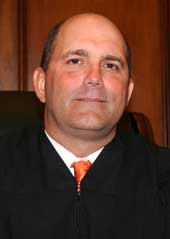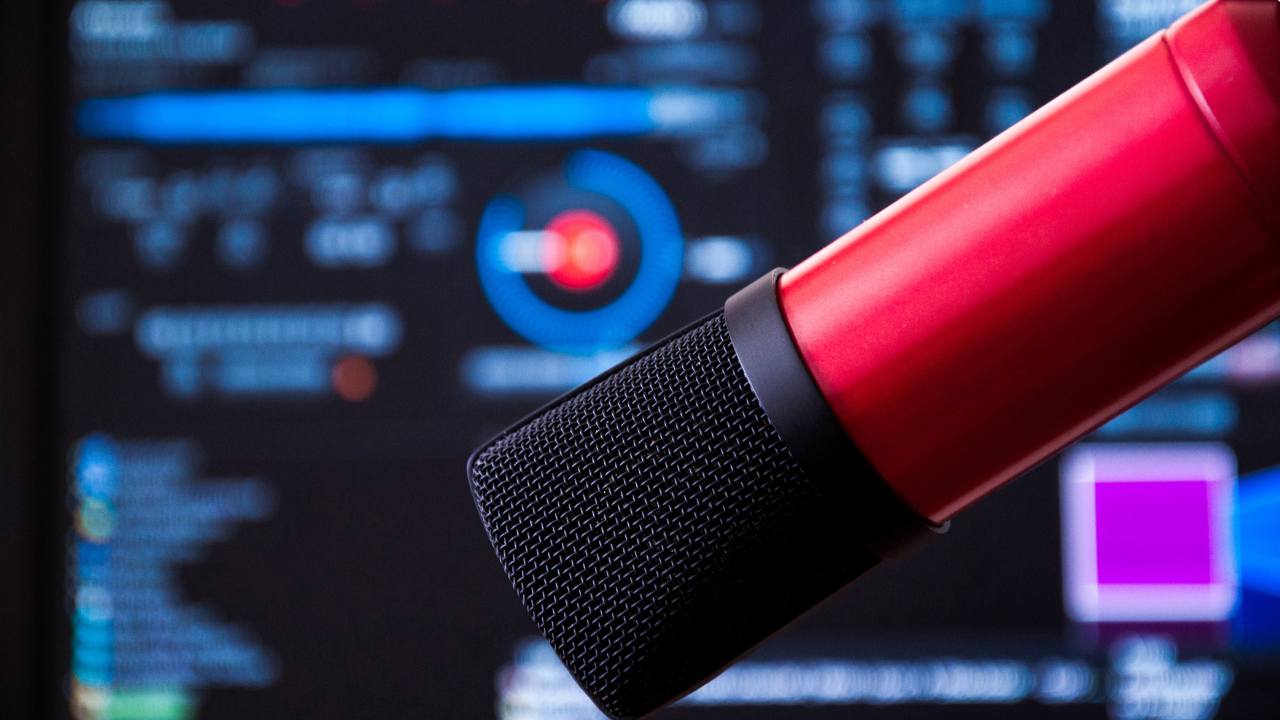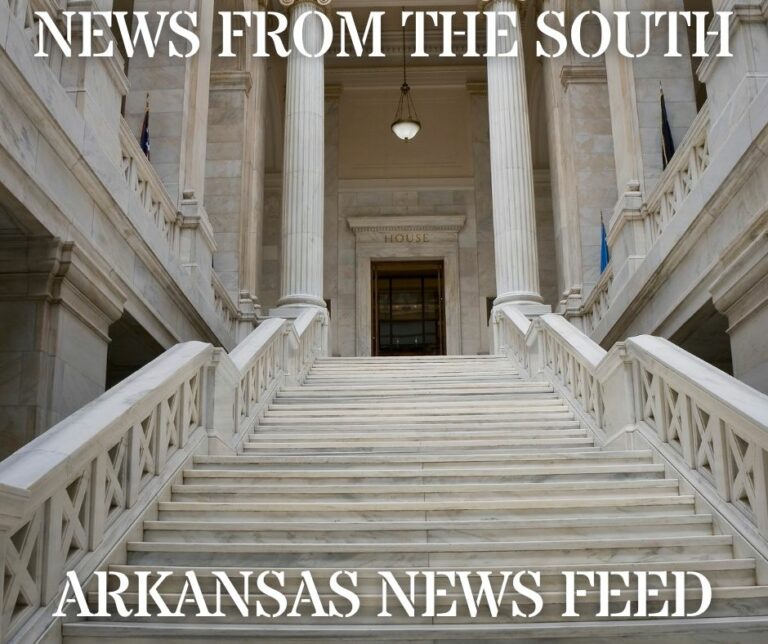Mississippi Today
‘A casino in every pocket’: Mississippi illegal online sports betting thrives as legalization stalls
On the heels of the Legislature’s most recent failed attempt to legalize mobile sports betting in Mississippi, a 52-year-old gambling enthusiast named Gary drew a distinction between himself and his fellow bettors: He is a winner, and most of them are losers.
“To say it honestly, most people are losers when it comes to sports betting because they lose control. But I hope they legalize it because I have control over my gambling,” Gary said. “Certain members of my family call me a degenerate, but I guarantee you I’m not a losing sports bettor.”
Gary, whose full name Mississippi Today agreed not to publish so he could speak candidly about placing illegal sports bets, is among the Mississippi residents who have together placed, according to some analysts, billions of dollars in online sports bets through illicit offshore betting platforms. He is also among the dozens of people who told Mississippi Today, in a written survey and interviews, about what legalization would mean for those who currently bet illegally.
What emerged is a portrait of the state’s shadow sports betting economy alongside growing concern among experts about the potential for gambling addiction.
A thriving black market
The push to legalize mobile sports betting in Mississippi has prompted a debate that has captured the attention of powerful moneyed interests and ordinary citizens alike. It has unfolded in bustling casinos on the Coast, church pews in the Delta and the group text chains of sports-obsessed college students.
Favorable regulatory and technological shifts have led to rapid growth for the online gambling market in recent years. But the industry continues to be undercut by illegal operators. Online gross gaming revenue in the U.S. topped $90 billion in 2024, $67 billion of which went to unlicensed players, according to research commissioned by the Campaign for Fairer Gambling, a group that lobbies against illegal gambling.
Mobile sports betting statewide has remained illegal in Mississippi, largely due to fears that legalization could harm the bottom line of the state’s casinos and increase gambling addiction. In 2024, illegal online betting in Mississippi made up about 5% of the national illegal market, which is about $3 billion in illegal bets in Mississippi, proponents said that year.
From the start of the most recent NFL season to about March, Mississippi had recorded 8.69 million failed attempts to access legal mobile sportsbooks in other states, according to materials presented to House members at a legislative meeting.
Those who engage in illegal online sports gambling and spoke to Mississippi Today described a black market that bridges newfangled technologies with the illicit gambling practices of yesteryear. Some use “arbitrage betting tools” and virtual private networks, or VPNs, to bet across the globe on different sites, pitting casinos against each other. Others keep themselves a degree removed from placing bets directly, using “bookies” to place bets on offshore gambling sites.
However people place illegal sports bets, the persistence of a thriving black market and an estimated $40 million to $80 million a year in tax revenue legal sports betting could bring in has prompted a fierce push for lawmakers to legalize the practice. The sports gambling lobby, as it has done in other states, has spent hundreds of thousands of dollars on Mississippi politicians trying to win the Legislature’s support.
The Mississippi House in 2023 and 2024 passed legislation legalizing online betting, but it died in the Senate.
Some form of sports betting is legal in 40 states, though only 20 have full online betting with multiple operators, according to Action Network, a sports betting application and news site. Some states have only in-person betting, and some only have a single online operator. Mississippi permits sports betting, but it only allows bets made in person at casinos or bets made with apps on mobile devices while inside casinos.
That is how Greg, 38, placed his bets in Mississippi.
‘Hyper-targeted victimization’
Greg earned his master’s degree at Delta State University in Cleveland, Mississippi. When he was a student, Greg would make the roughly one-hour drive north to Tunica, home of several casinos along the Mississippi River. The area was one of the first to capitalize after Mississippi enacted the Mississippi Gaming Control Act in the early 1990s, which legalized dockside casino gambling.
For Greg, driving through the rural Delta landscape to a casino was as a guardrail against over-indulgence, one that has been lost with the advent of smartphones and easy access to offshore betting platforms.
“That’s a conscious effort, that you think the whole way, ‘is that money you need to be gambling or losing, versus (now) when you’re dialing it up on your phone,” he said.
Greg has since moved to Kansas, a state that fully legalized mobile sports betting. He now bets on football and college basketball two to four times a week with wagers ranging from $55 to $500. He places bets on three different apps, all of which compete with special promotions enticing him to return. These deals are not typically matched by brick-and-mortar casinos
“I can’t imagine walking into the Horseshoe in Tunica and them saying, bet $100 cash and we’ll give you a free $50.”
Online betting is conducive to marketing campaigns that are precise in their execution and relentless in their frequency, experts told Mississippi Today. The rise of mobile sports betting has been accompanied by the introduction of new technologies in advertising and marketing, including those buoyed by artificial intelligence.
“You can absorb their betting patterns and use AI to predict when to send that notification reminding them to place a bet,” said Dan Durkin, an Associate Professor of Social Work at the University of Mississippi. “It’s hyper-targeted victimization, let’s just call it what it is.”
Durkin is chair of the steering committee for the Coalition on Intercollegiate Athletics, an organization that works to promote student well-being in intercollegiate athletics. The coalition has monitored the spread of mobile sports betting as college campuses have become hubs of activity for sports betting and, increasingly, gambling addiction.
According to a 2023 survey conducted by the National Collegiate Athletic Association, sports wagering is pervasive among college students, with 67% of students betting on sports. Nearly 60% of students are likely to bet on sports after seeing an advertisement, the survey found.
And more than 60% engaged in sports gambling are betting on sports using highly addictive “in game/micro bets.” This type of betting allows users to wager on specific in-game moments, such as the next football play or golf swing. That sort of betting would become easier if sports betting is legalized because, under current law, many bettors say they still rely on bookies to place bets on offshore gambling sites for them.
These forms of online gambling, made seamless and accessible through digital apps, can allow addiction to fly under the radar.
Gambling addiction has the highest suicide rate of any addiction disorder, according to the National Institutes of Health. The disorder’s ability to fester in private makes intervention more daunting, Durkin said.
PODCAST: Mississippi citizens often left in the dark on special-interest lobbying of politicians
“If you have a drug problem, you are going to have physical symptoms. If you have an alcohol problem, you are going to have physical symptoms. Gambling disorder can remain hidden for a very long time. Most of the folks that have it stay very functional,” Durkin said.
“Until they’re not.”
‘Gambler is going to find a way to bet’
For some students, the appeal of mobile sports betting stems not from cleverly-constructed digital marketing schemes, but as a source of camaraderie.
Cole, a 19-year-old college student, likes to bet on soccer and March Madness and the NBA Playoffs. He and a group of friends recently placed bets on the Master’s golf tournament
“It’s fun to do with your friends cause you’re all watching the game together, you get that adrenaline rush, and you celebrate together,” he said. “It’s not life-changing money, it’s mostly a social thing.”
Nevertheless, some Mississippi universities have become so alarmed by the rise of online gambling on their campuses, they are taking steps to prepare for increased addiction, even as mobile sports betting remains illegal. In Oxford, the University of Mississippi plans to hire a gambling clinician to help students struggling with addiction, according to The Daily Mississippian.
Influential religious institutions in Mississippi, a Bible Belt state, have long opposed the spread of gambling, a stance many retained as mobile sports betting came before the Legislature.
During the 2025 legislative session, David Tipton, District Superintendent for the Mississippi District United Pentecostal Church, sent a letter to the Mississippi Legislature opposing legalization on the grounds that it would harm young people in particular.
“The introduction of mobile sports betting would represent the most significant expansion of gambling in Mississippi since the legalization of casinos over thirty years ago,” Tipton wrote. “This development would effectively place a casino in the pocket of every Mississippian, creating new challenges, particularly for our youth and young adults who are the most vulnerable to gambling-related harm.”
Mississippi is one of the poorest states in the country, and the extent to which that calls for an added layer of caution lies at the heart of the debate between proponents and opponents of legalization.
“I’m a libertarian. It’s not my job to tell people how to live their life,” said Gary, the 52-year-old sports gambler. “If you can’t control yourself, I’m sorry, learn some control. Is that brutal? Probably, yes. If you want help, there’s way to get help. You can self-ban yourself.”
READ MORE: Questions to ask Mississippi lawmakers about transparency, ethics, special-interest money
Gary says every gambler is responsible for managing their own “leak.”
The term often refers to a consistent weakness in a bettor’s strategy, but Gary also uses it to connote a weakness of will.
“Every gambler has a leak, as we call them. Drugs, women, money, strippers, or the dice table, which was my leak. I could win every sports bet, but I’m going to walk through the casino and go to the dice table and lose money on a dice table,” Gary said.
“The Legislature, in their great, infinite wisdom, where they say they are protecting people, they’re not protecting anybody except casinos. A gambler is going to find a way to bet.”
This article first appeared on Mississippi Today and is republished here under a Creative Commons Attribution-NoDerivatives 4.0 International License.
The post 'A casino in every pocket': Mississippi illegal online sports betting thrives as legalization stalls appeared first on mississippitoday.org
Note: The following A.I. based commentary is not part of the original article, reproduced above, but is offered in the hopes that it will promote greater media literacy and critical thinking, by making any potential bias more visible to the reader –Staff Editor.
Political Bias Rating: Centrist
This article presents a balanced view of the debate surrounding mobile sports betting in Mississippi. It reports on both the arguments for and against legalization without strongly endorsing one side over the other. The piece discusses the perspectives of individuals, including sports bettors and opponents from religious institutions, as well as financial considerations and public health concerns. While there are references to lobbying and the role of lawmakers, the article primarily focuses on providing a factual overview of the situation without exhibiting clear ideological leaning. The language remains neutral and factual throughout the piece.
Mississippi Today
‘Get a life,’ Sen. Roger Wicker says of constituents
A note from Adam Ganucheau: A couple hours after this column published, Sen. Roger Wicker’s office reached out and demanded a correction, saying the senator’s “get a life” comment was directed to himself and not to constituents. That’s certainly not how I nor hundreds of Mississippians who commented on and shared the viral video heard it. Mississippi Today has updated portions of this column to reflect concerns raised by Wicker’s office. Here’s a link to the video/audio of his response to the question about constituent concerns. Mississippians can decide for themselves what Wicker meant.
When 34-year-old Thad Cochran arrived in Washington after his first election in 1972, the Republican felt it important to document what he’d heard and learned from Mississippians on the campaign trail and share it with his young staff.
He sat down at a typewriter and wrote a memo titled “General Responsiveness” and dated March 14, 1973:
During the campaign I detected a very strong animosity among the people toward government and those associated with government bureaus and agencies. This included elected officials and those associated with them. Part of the cause of this attitude was due to a lack of feeling or understanding by government people for the needs and opinions of the average citizen. We are all in a job to represent all our constituents. We are not the bureaucracy. A constituent who asks us for help should be assured to be in need of help with our office as his last resort. A constituent who writes a letter should be made to feel by our response that he is glad he wrote us. A constituent who claims to have been wronged by the government should be assumed to be correct. Everyone should guard against developing the attitude that we are better than, smarter than or more important than any constituent. We do not hold a position of authority over any constituent. We are truly servants of the people who selected us for this job.
Every year from 1973 through 2018, over his three U.S. House terms and six U.S. Senate terms, Cochran shared that memo with every staffer who worked in his offices. The guidance, he said all those years, was a necessary reminder to show respect to the people who offer feedback or need help. He never wanted his staff or himself to forget who sent them to Washington.
The memo, like so many other things, serves as a stark reminder that Cochran was among the last in a bygone era of American politics. The perspective he wrote and shared is a far cry from what Mississippians have been getting recently from our current U.S. senators.
“Surely everybody else has better things to do with their time,” senior U.S. Sen. Roger Wicker said to a room full of constituents earlier this month when asked about calls and emails his office has been getting. After half-heartedly explaining that he does see a list of names of people who reach out to his office, he quipped: “Get a life.”
Wicker’s office said Friday that the senator directed “Get a life” to himself, not to constituents.
Wicker, who typically chooses his words a little more carefully, perhaps has been trying to match his junior colleague’s energy.
“Why is everyone’s head exploding?” U.S. Sen. Cindy Hyde-Smith said in April to Mississippi constituents who had expressed concerns over slashing federal Medicaid spending. “I can’t understand why everyone’s head is exploding.”
There are many kind staffers working for Republicans Wicker and Hyde-Smith who are helpful to Mississippi constituents in any number of ways privately or behind the scenes. These people care deeply about serving their home state and they do it well, and they cannot help how their bosses address the public. But, boy, their phones must be blowing up more than ever since the senators made these comments.
Consider, for a moment, what it means that we have devolved from having a leader who believed that “a constituent who claims to have been wronged by the government should be assumed to be correct” to one who thinks telling constituents to “get a life” is appropriate. Think about the fact that we replaced a leader who regularly reminded his staff that “we are truly servants of the people who selected us for this job” with one whose gut response to legitimate concerns from constituents is that their “heads are exploding.”
Just … wow. To call it alarming doesn’t fully encapsulate the gravity of their behavior. It’s enough to discourage even the most optimistic among us about the present and future of our state and our nation.
It’s enough to inspire you to ponder, in this intense political climate when unprecedented and harrowing federal government decisions are being made and going largely unchecked every day, whether our current U.S. senators even remember why they’re in Washington, why we sent them there.
It is necessary, in the shortest possible order, to ask and answer for ourselves what we should expect of our elected officials and whether we should feel OK about being dismissed or ignored outright like this.
You don’t have to be a Democrat to think that this behavior is out of line. Plenty of Republicans — some publicly and many privately — are increasingly disturbed by what’s happening in Washington. Regardless of your own personal political beliefs, be honest with yourself about whether you can read these comments from our senators and still feel that your best interests are being represented.
Sadly, we can no longer ask Cochran to help us answer these questions, but it sure seems clear where he’d stand. What about you?
READ MORE: Mississippi, where ‘We Dissent’ means nothing to elected officials
This article first appeared on Mississippi Today and is republished here under a Creative Commons Attribution-NoDerivatives 4.0 International License.
The post 'Get a life,' Sen. Roger Wicker says of constituents appeared first on mississippitoday.org
Note: The following A.I. based commentary is not part of the original article, reproduced above, but is offered in the hopes that it will promote greater media literacy and critical thinking, by making any potential bias more visible to the reader –Staff Editor.
Political Bias Rating: Center-Left
The content critiques Republican senators for their dismissive attitude toward constituents, contrasting them with a more respectful past leader. It highlights concerns about current political behavior and governance, emphasizing accountability and responsiveness to the public. While it acknowledges that some Republicans privately share these concerns, the tone and framing suggest a leaning that favors more progressive or reform-minded perspectives, typical of center-left commentary.
Mississippi Today
UFC cage fighting at the White House: Will Mississippi follow the lead?
Change occurs so quickly in the 250th year of our nation’s existence sometimes we feel the need to call timeout, survey the rapidly shifting landscape and wonder: What next? What in Hades happens next?
We have a former Fox Network weekend host in charge of our military. We have a former professional wrestling promoter heading up the Department of Education (which she wants to scrap entirely). We have an anti-vaccine advocate leading the Department of Health and Human Services. Hard to tell these days who are our allies and who are our enemies. Few of our traditional allies trust us anymore. Our president creates, then delays, then reduces and then increases tariffs so often we can’t keep up.
Indeed, what the heck comes next?
Well, stop the presses. Now we know what’s next: Cage fighting on the White House grounds, UFC style. Trump has indicated he wants it to happen. His close friend Dana White, CEO of Ultimate Fighting Championship (UFC), says unequivocally this is going to happen. Paramount, which has been so much in the news lately, will televise it. Millions of dollars will be made. Eyes will be blackened! Brains will be concussed!! Blood will flow!!! Ratings will soar!!!! MAGA!!!!!
Ancient Rome had the Colosseum and gladiators fighting to the death for the entertainment of the emperor. Washington will have cage fighting, no holds barred, at the White House, heretofore a National Historic Landmark so designated for its significance to American history, architecture, arts and culture. At least there will be no lions in the White House cage. Or will there be? Perhaps alligators.
The target date is July 4, 2026. As Trump put it in a speech in Iowa: “We’re going to have a UFC fight, think of this, on the grounds of the White House. We have a lot of land there. … We’re going to have a UFC fight, championship fight, full fight.”
Yes, he really did say we have a lot of land there, leaving out the obvious. It doesn’t take much land for a caged-in, 746-square foot UFC octagon. Besides, there’s not enough room for a golf course, which Trump might prefer.
U.S. presidents have dabbled in sports before, though not quite the way Trump, who owns 17 golf courses worldwide, has immersed himself in golf. Trump in his second term reportedly has played golf on a quarter of the days he has been president, costing taxpayers roughly $70 million in travel and secret service expenses.
Previous presidents have not been quite so active, although Nixon installed a bowling alley in the White House basement. Eisenhower added a putting green on the White House lawn. Clinton added a jogging track to the White House grounds. Obama loved to play pick-up basketball. Most all recent presidents have been huge sports fans. But, at least to my knowledge, Trump is the first UFC aficionado in the White House.
Which brings to my mind this question: Which president would have been best at UFC? My money definitely would be on sturdy Teddy Roosevelt, who boxed at Harvard and sparred at both boxing and judo while president. He was a fitness freak. He also found time as president to save college football, although I’m not at all sure President Teddy would fancy what college football has become.
There are other president-athletes to consider. Abe Lincoln was a champion amateur wrestler and would have had a decided advantage in reach over most presidents. Gerald Ford was a Michigan football star who played on two national championship teams and was the Wolverines’ MVP as a senior. Ford was in the trenches, a center on offense and a linebacker on defense. This was back before facemasks. Clearly, he was a tough guy.
William Howard Taft, our 27th president, was a varsity heavyweight wrestler at Yale. In retrospect, it seems a shame sumo wrestling wasn’t popular in the early 20th century. Taft, 5 feet, 11 inches tall and weighing just over 350 pounds, would have been a natural.
On the local front, you don’t have to read Mississippi Today daily to know that Mississippi’s current political leaders often follow President Trump’s lead. Indeed, there seems a highly competitive contest to see which Mississippi politico can get the tightest grip on Trump’s coattails. They all want to follow Trump’s blueprint and make Mississippi great again.
With that in mind, can UFC fighting at the Governor’s Mansion, right there on Capitol Street, be far behind?
Think of the possibilities. For starters, how about Shad White vs. Andy Gipson? Who you got?
Clarification: This column was updated to reflect that the United States of America is in its 250th year of existence.
This article first appeared on Mississippi Today and is republished here under a Creative Commons Attribution-NoDerivatives 4.0 International License.
The post UFC cage fighting at the White House: Will Mississippi follow the lead? appeared first on mississippitoday.org
Note: The following A.I. based commentary is not part of the original article, reproduced above, but is offered in the hopes that it will promote greater media literacy and critical thinking, by making any potential bias more visible to the reader –Staff Editor.
Political Bias Rating: Center-Left
The article adopts a critical tone toward former President Trump and his administration, highlighting controversial appointments and policies with a degree of skepticism and irony. It uses humor and historical comparisons to question the appropriateness of hosting UFC cage fighting at the White House, suggesting a disapproval of the spectacle and the current political climate. While not overtly partisan, the piece leans toward a center-left perspective by scrutinizing conservative figures and policies more than offering balanced praise.
Mississippi Today
Trump nominates two Mississippi Supreme Court justices to federal bench
President Donald Trump on Tuesday announced his nomination of James Maxwell and Robert Chamberlin, two Mississippi Supreme Court justices, to vacant federal judicial seats in northern Mississippi.
Pending Senate confirmation of the nominations, Gov. Tate Reeves will appoint two state high court justices temporarily, then special elections will be held in November of 2026.
Trump made the announcement on Truth Social, his social media platform, where he said the two justices, if confirmed, would uphold the Constitution and the rule of law. Both Chamberlin and Maxwell, through the state Administrative Office of the Court’s public information officer, declined to comment.
The two nominations will go before the U.S. Senate for confirmation. Both of Mississippi’s Republican U.S. senators, Roger Wicker and Cindy Hyde-Smith, commended Trump for nominating the two jurists and said they supported their confirmation.
“I want to thank President Donald Trump for his nomination of two solid and experienced jurists for the U.S. District Court,” Wicker said in a statement. “I wholeheartedly support Justice Chamberlin and Justice Maxwell and look forward to their speedy confirmation.”
Maxwell earned his undergraduate and law degrees from the University of Mississippi. Former Gov. Haley Barbour in February of 2009 appointed Maxwell to the state Court of Appeals. Maxwell was elected to the post in 2010 and reelected in 2014. Former Gov. Phil Bryant appointed him to the state Supreme Court in January 2016. He was later elected to an eight-year term in November of 2016 and reelected in 2024.

Chamberlin earned his undergraduate and law degrees from the University of Mississippi. He first served as a state circuit court judge for 12 years in the 17th Circuit District. In 2016, he was elected to an open seat on the state Supreme Court and reelected in 2024.
Before becoming a judge, Chamberlin was a member of the state Senate for five years, representing DeSoto County.
Chamberlin and Maxwell will replace U.S. District Judges Michael Mills and Sharion Aycock, both of whom decided to take senior status in recent years.
It’s unclear who Reeves might appoint to fill the vacancies. He has previously filled judicial vacancies on the state Court of Appeals with prosecutors or circuit court judges with prosecutorial experience, such as the appointments of Judge John Weddle and Judge John Emfinger.
This article first appeared on Mississippi Today and is republished here under a Creative Commons Attribution-NoDerivatives 4.0 International License.
The post Trump nominates two Mississippi Supreme Court justices to federal bench appeared first on mississippitoday.org
Note: The following A.I. based commentary is not part of the original article, reproduced above, but is offered in the hopes that it will promote greater media literacy and critical thinking, by making any potential bias more visible to the reader –Staff Editor.
Political Bias Rating: Center-Right
The content presents a straightforward report on President Donald Trump’s judicial nominations, highlighting support from Republican senators and emphasizing the nominees’ qualifications and conservative credentials. The tone is neutral and factual, but the focus on Trump and Republican figures, along with positive framing of their actions, suggests a slight lean toward center-right perspectives without overt partisan commentary.
-
News from the South - Tennessee News Feed3 days ago
GRAPHIC VIDEO WARNING: Man shot several times at point-blank range outside Memphis convenience store
-
News from the South - Texas News Feed3 days ago
Kratom poisoning calls climb in Texas
-
News from the South - Kentucky News Feed3 days ago
Unsealed warrant reveals IRS claims of millions in unreported sales at Central Kentucky restaurants
-
Local News7 days ago
Bay St. Louis artist commemorates Amtrak’s return with hundreds of handmade medallions
-
News from the South - Arkansas News Feed5 days ago
Idaho is losing OB-GYNs. Doctors who remain are trying to shoulder the extra burdens.
-
News from the South - Georgia News Feed7 days ago
RCSS: Students showed growth on Georgia Milestones Assessments for 2024-2025
-
Our Mississippi Home5 days ago
Pride of Mississippi Marching Band to Kick Off Season with Free Concert
-
News from the South - Florida News Feed7 days ago
Summer heat, storms continue to swamp Central Florida. Here’s what to expect












































